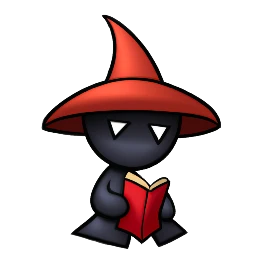Article posted Sat Feb 25 2023
Game History: A Brief Introduction to Final Fantasy
The Final Fantasy series is one of the most iconic franchises in the video game industry, developed and published by Square Enix. First released in 1987, the series has since produced numerous games and spin-offs, with its latest entry, Final Fantasy XVI, releasing in 2023. Over the years, the series has become famous for its immersive worlds, memorable characters, and epic storytelling.
Releases
-
1987 - Final Fantasy I
Released on the Nintendo Entertainment System (NES), the game follows a group of heroes as they embark on a quest to restore light to the world's four elemental crystals. The game's success paved the way for a sequel, and its themes would be later seen in more recent Final Fantasy games. -
1988 - Final Fantasy II
Introduced the now-iconic chocobo creatures and airships. -
1990 - Final Fantasy III
Released on the NES and was the first game to feature the job system, where players could change their characters' classes throughout the game. A major hallmark of the series. -
1991 - Final Fantasy IV
The series jumped to 16-bit graphics, released on the SNES, and was the first game in the series to feature a true story with a cast of characters and a fully-developed world. -
1992 - Final Fantasy V
Refined the job system and introduced new mechanics such as the ability to combine jobs. -
1994 - Final Fantasy VI
Widely considered one of the best games in the series, with its complex characters, storyline, and gameplay. -
1997 - Final Fantasy VII
Released exclusively for the PlayStation, it was a groundbreaking game that brought the series into 3D graphics for the first time. The game was a huge success, selling over 10 million copies and cementing the series' place in video game history. -
1999 - Final Fantasy VIII
Featuring a love story as its central theme and introduced a new magic system that relied on drawing magic from enemies. -
2000 - Final Fantasy IX
Returned to the series' roots with a more traditional fantasy setting and a return to the classic job system. -
2001 - Final Fantasy X
Released for the PlayStation 2, it was the first game in the series to feature voice acting and introduced a unique leveling system. -
2002 - Final Fantasy XI
The series' first massively multiplayer online role-playing game (MMORPG), introducing a job system like that found in Final Fantasy V, which was a large request of general MMORPG players of this time period. The game still features an active player base, however many have migrated to Final Fantasy XIV due to general hardware requirements being lower. -
2006 - Final Fantasy XII
Released for the PlayStation 2, it was a departure from the series' traditional turn-based combat, instead featuring a more action-oriented battle system. -
2009 - Final Fantasy XIII
Featured a more linear story and a revamped combat system that focused on fast-paced action. -
2010 - Final Fantasy XIV
Another MMORPG and one that suffered from a disastrous launch, leading to the game being shut down entirely and rebuilt from the ground up. An in-game event lead to the devastating end to everyone and everything, including all characters regardless of their in-game progress. -
2013 - Final Fantasy XIV: A Realm Reborn
The relaunch of Final Fantasy XIV, continuing the storyline in parts. Players of the original launch were gifted in-game items and gifts as compensation for their continued support, and the game retains an active player base today thanks to support for PC, PlayStation 4 and Playstation 5. -
2016 - Final Fantasy XV
Released for the PlayStation 4 and Xbox One, featured an open-world setting and real-time combat. -
2023 - Final Fantasy XVI
Releasing exclusively on the PlayStation 5, game development began in 2015, before the release of Final Fantasy XV.
Conclusion
Final Fantasy has been a staple of the video game industry for over three decades, with each entry bringing its own unique blend of story, characters, and gameplay mechanics. From the NES era to the current generation of consoles, the series has evolved and grown, while still retaining the elements that have made it a fan favorite for so many years.
